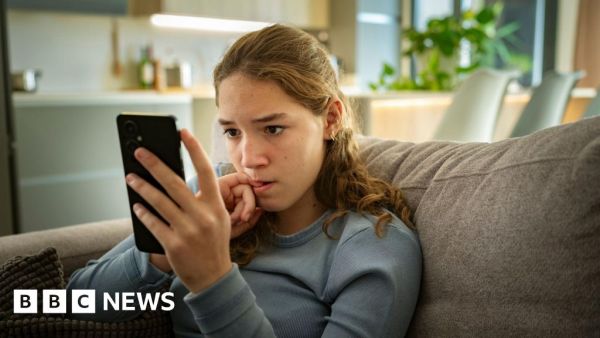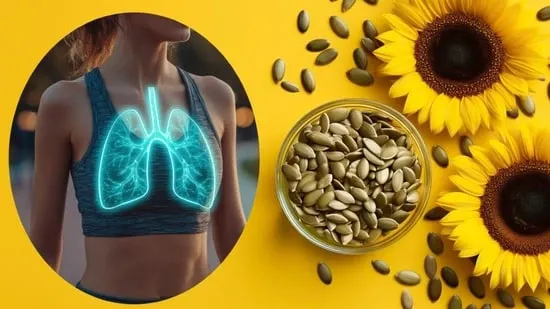
Instagram’s tools designed to protect teenagers from harmful content are failing to stop them from seeing suicide and self-harm posts, a study has claimed.
Researchers also said the social media platform, owned by Meta, encouraged children “to post content that received highly sexualised comments from adults”.
The testing, by child safety groups and cyber researchers, found 30 out of 47 safety tools for teens on Instagram were “substantially ineffective or no longer exist”.
Meta has disputed the research and its findings, saying its protections have led to teens seeing less harmful content on Instagram.
“This report repeatedly misrepresents our efforts to empower parents and protect teens, misstating how our safety tools work and how millions of parents and teens are using them today,” a Meta spokesperson told the BBC.
“Teen Accounts lead the industry because they provide automatic safety protections and straightforward parental controls.”
The company introduced teen accounts to Instagram in 2024saying it would add better protections for young people and allow more parental oversight.
It was expanded to Facebook and Messenger in 2025.
The study into the effectiveness of its teen safety measures was carried out by the US research centre Cybersecurity for Democracy – and experts including whistleblower Arturo Béjar on behalf of child safety groups including the Molly Rose Foundation.
The researchers said after setting up fake teen accounts they found significant issues with the tools.
In addition to finding 30 of the tools were ineffective or simply did not exist anymore, they said nine tools “reduced harm but came with limitations”.
The researchers said only eight of the 47 safety tools they analysed were working effectively – meaning teens were being shown content which broke Instagram’s own rules about what should be shown to young people.
This included posts describing “demeaning sexual acts”, as well as autocompleting suggestions for search terms promoting suicide, self-harm or eating disorders.
“These failings point to a corporate culture at Meta that puts engagement and profit before safety,” said Andy Burrows, chief executive of the Molly Rose Foundation – which campaigns for stronger online safety laws in the UK.
It was set up after the death of Molly Russell, who took her own life at the age of 14 in 2017.
At an inquest held in 2022, the coroner concluded she died while suffering from the “negative effects of online content”.
The researchers shared with BBC News screen recordings of their findings, some of these including young children who appeared to be under the age of 13 posting videos of themselves.
In one video, a young girl asks users to rate her attractiveness.
The researchers claimed in the study Instagram’s algorithm “incentivises children under-13 to perform risky sexualised behaviours for likes and views”.
They said it “encourages them to post content that received highly sexualised comments from adults”.
It also found that teen account users could send “offensive and misogynistic messages to one another” and were suggested adult accounts to follow.
Mr Burrows said the findings suggested Meta’s teen accounts were “a PR-driven performative stunt rather than a clear and concerted attempt to fix long running safety risks on Instagram”.
Meta is one of many large social media firms which have faced criticism for their approach to child safety online.
In January 2024, Chief Executive Mark Zuckerberg was among tech bosses grilled in the US Senate over their safety policies – and apologised to a group of parents who said their children had been harmed by social media.
Since then, Meta has implemented a number of measures to try and increase the safety of children who use their apps.
But “these tools have a long way to go before they are fit for purpose”, said Dr Laura Edelson, co-director of the report’s authors Cybersecurity for Democracy.
Meta told the BBC the research fails to understand how its content settings for teens work and said it misrepresents them.
“The reality is teens who were placed into these protections saw less sensitive content, experienced less unwanted contact, and spent less time on Instagram at night,” said a spokesperson.
They added the tools gave parents “robust tools at their fingertips”.
“We’ll continue improving our tools, and we welcome constructive feedback – but this report is not that,” they said.
It said the Cybersecurity for Democracy centre’s research states tools like “Take A Break” notifications for app time management are no longer available for teen accounts – when they were actually rolled into other features or implemented elsewhere.
-
PCB decided after being gritty in Asia Cup, Babar Azam will return in T20I format

-
Ind A vs Aus A: What happened to KL Rahul suddenly? Left the field while batting, know the reason

-
On World Lung Day, nutritionist shares 7 healthy seeds for lungs: Chia, pumpkin, sesame and.

-
Fat but fit: Being too thin may carry higher risk of early death than overweight

-
Stanford physician reveals truth about multivitamins: ‘Only 0.1% of health supplements are actually helpful’
